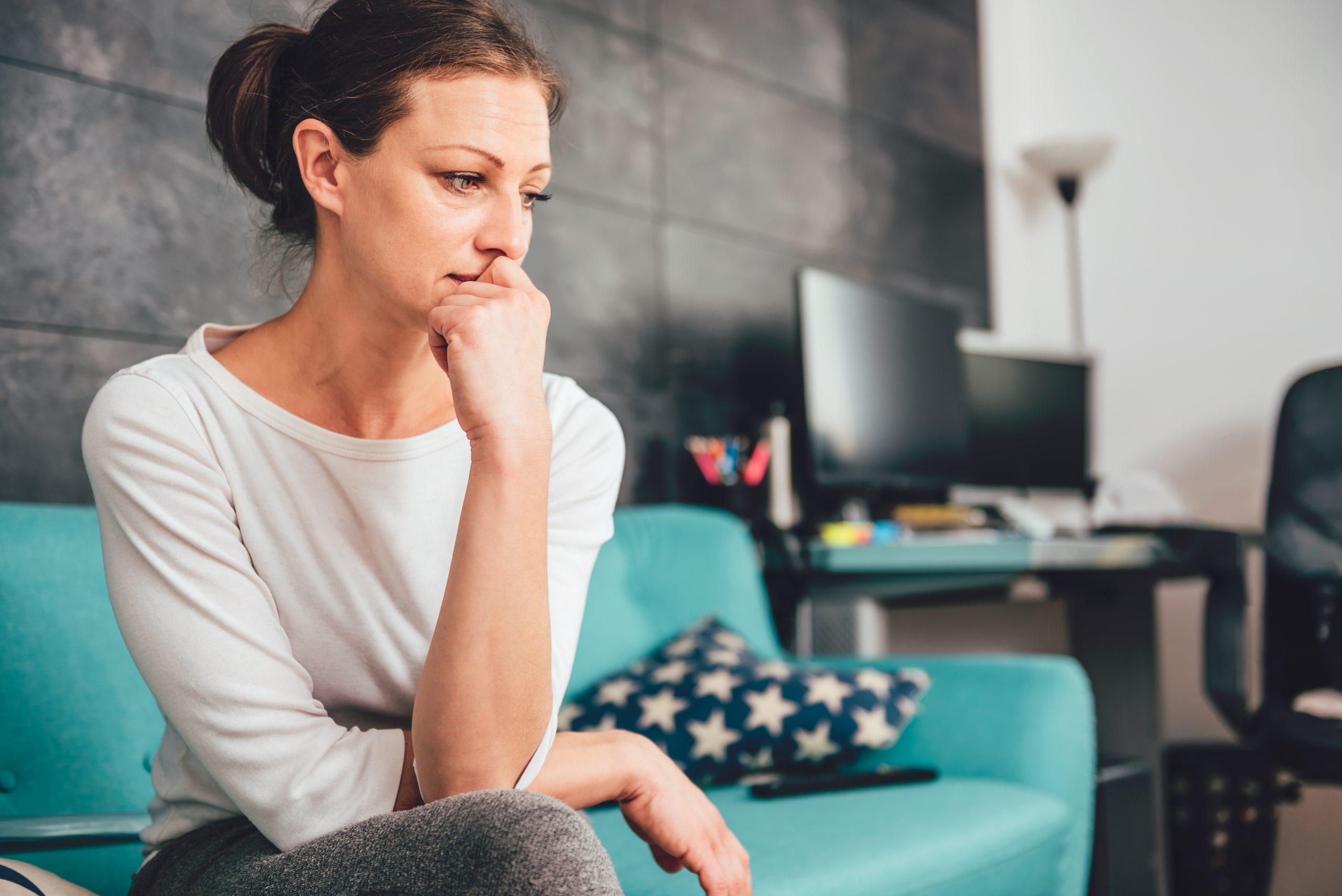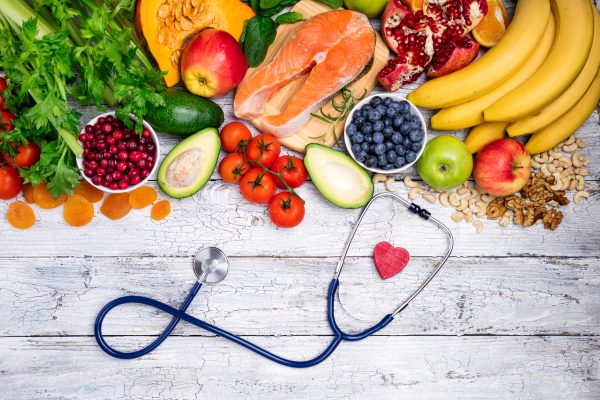A Natural Path To Relieve Anxiety-3 Amazing Tips Straight From The Experts!
According to ADAA, anxiety disorders are the most common mental illness in the United States affecting over 40 million adult Americans. The National Institute of Health has estimated that 31% of U.S. adults experience any anxiety disorder at some time in their lives.
The great news is that there are scientifically proven ways that you can ease your anxiety without experiencing the negative effects of medications.
Has your doctor ever told you that your food choices could be driving your anxiety disorder? Probably not.
Tip #1 – USE FOOD AS MEDICINE
This tip comes straight from Dr. Uma Naidoo, who is considered a “Triple Threat” in the nutrition and mental health space. Dr. Uma is a Culinary Instructor, Nutritional Chef, and Director of the Nutritional and Lifestyle Psychiatry Department at Massachusetts General Hospital. She serves on the faculty of Harvard Medical School and is acclaimed for her groundbreaking research and work in the area of Nutritional Psychology.
I recently picked up a copy of her new book, “This Is Your Brain On Food“, and was excited to see that someone is finally bringing the gut-brain connection to the forefront of Psychology Medicine. In her book, she refers to the gut-brain connection as the gut-brain romance. She outlines through scientific data that our gut microbiome (good and bad bacteria/microbes in our gut) have a profound effect on our overall mental health and well-being. What’s the connection you might ask? Many studies have revealed that gut bacteria are intimately involved in the production of important brain neurotransmitters like GABA, Serotonin, and Dopamine which are directly responsible for the way we think and feel. She further explains that when your gut bacteria are altered, it can cause damage to your brain function. Because of this effect, what we put into our gut matters, and “food is some of the most potent mental health medicine available,” says Dr. Uma.
I can personally attest to this truth. My first experience with the gut-brain connection goes back 10 years ago when my son was diagnosed on the Autism Spectrum. Of course, I wanted to do everything I could do to help him, so I took him to see a Functional Medicine doctor. After running several tests, he told me that my son had a “leaky gut.” I was like, “What is that?” He explained that he had an overgrowth of yeast and bad bacteria in his gut which was causing inflammation and had damaged the integrity of his gut lining. So when he would eat certain foods, small undigested particles would leak from the gut wall into his bloodstream causing him to become sensitive to them and produce metabolites that were negatively affecting his brain and behavior. The doctor recommended we remove all the foods that came back positive on the food sensitivity test. We immediately switched him to a gluten and dairy-free whole foods-based diet with no processed food or chemicals and “WOW”, what a huge difference this made on his mood and behavior in just a couple of months. I would not have believed the profound effect food has on our brain if I hadn’t witnessed it with my own eyes. We used a few other protocols to heal his leaky gut, but by far, changing his diet was one of the biggest “game changers” in his recovery process.
Hippocrates himself said, “All disease starts in the gut,” so if you are looking for natural ways to improve your mental health, I recommend looking at your diet first.
Have a Leaky Gut? Book a free consultation!
here!
Below is your cheat sheet from Dr. Uma’s book, “This Is Your Brain On Food”, which includes foods to embrace and the foods to avoid if you are looking for relief from anxiety.
Foods to Embrace
- Food high in fiber: Beans, berries, pears, apples, broccoli, brussel sprouts, buckwheat, etc.
- Fruits and vegetables
- Fermented and cultured foods: yogurt, kombucha, miso, apple cider vinegar, and pickled vegetables.
- Tryptophan: Turkey, meats, chickpeas.
- Omega 3 fatty acids
- Vitamins D, B complex, A, C, and E.
- Minerals: Magnesium, potassium, and selenium.
- Spices: Turmeric
- Herbs: Lavender, passionflower, and chamomile
Foods to Avoid
- The Typical Western Diet: Foods high in bad fats(red meat, fried foods, fast foods), sugar, foods high GI carbs like white bread, potatoes, pasta, anything made from refined flour.
- Caffeine: Keep caffeine consumption under 400 mg/day
- Reduce alcohol intake
- Gluten
- Artificial sweeteners: Aspartame is particularly harmful. Use stevia in moderation and with caution.
Tip #2 – CALM THE BODY, CLEAR THE MIND
There are many reasons for anxiety-like genetic predisposition or illnesses such as heart disease and diabetes. We learned from Dr. Uma that the health of our gut has a huge impact on our mental health. However, studies have also revealed that modern-day stress plays a key role in developing an anxiety disorder.
The “acute stress response” was first coined by Walter Cannon in the 1920s and today we call this the “fight or flight” response. Basically, this is a chain of rapid responses that are triggered from our sympathetic nervous system in order to protect us from a perceived threat, like rapid heart, blood pressure changes, and massive adrenaline and cortisol surges. Essentially, it allows our bodies to perform under intense pressure.
This is great if we are being chased by a tiger and need to react quickly, however, the body doesn’t understand how to differentiate between different kinds of stressors. Therefore, seemingly smaller events like getting stuck in traffic, kids screaming in the background, endless to-do lists, or a fight with your spouse can also trigger the same type of stress response in the body. When our ‘fight or flight” or sympathetic nervous system is constantly switched on, it not only can lead to anxiety, but to a host of other health issues.
For most of us, stress is not going away anytime soon. The million-dollar question remains, how do we give our minds relief from this chronic state of chatter and chaos that fuels our anxiety?
According to Dr. Kelly Brogan, MD, Holistic Psychiatrist and author of New York Times bestseller, “A Mind Of Your Own”, we need to calm our body in order to clear our mind. When we learn how to calm our bodies, it shifts our nervous system from the sympathetic or “fight or flight” over to the parasympathetic state or “rest and digest” where healing can take place. When we are in a state of “rest and digest”, the parasympathetic nervous system triggers something Dr. Herbert Benson coined as the “relaxation response.” This physical state of deep relaxation changes the physical and emotional responses to stress as follows:
-
Decreased metabolism
-
Slower heart rate
-
Releases bile and triggers peristalsis for more efficient digestion
-
Muscle relaxation
-
A decrease in blood pressure
-
Increases in nitric oxide
Knowledge is power! When we truly understand the power that the relaxation response has on our bodies, it is a powerful strategy in fighting anxiety. Dr. Brogan recommends a few practical ways to invoke the relaxation response in our bodies as a shortcut to healing:
Meditation
Meditation is one of the most powerful ways to shift our bodies into the parasympathetic state making it a powerful tool to fight stress and heal anxiety. It allows us to quiet our minds and release the stress of our day to experience a sense of calm and mindfulness. Spending quiet time in solitude can bring new perspective and strength to help us better deal with all of life’s situations.
Deep Breathing
Deep breathing is practical for everyone because it’s something you can do anytime, anyplace. Taking deep cleansing breaths allows your heart rate to slow down which brings more oxygen into your bloodstream signaling your brain to slow down and release “feel good” chemicals like endorphins.
Gratitude
Paying attention to what we feel grateful for puts us in a positive frame of mind. Many scientific studies have linked gratitude with more positive emotions and greater happiness. Practicing gratitude on a daily basis helps shift our emotions towards a happier, more powerful mindset.
TIP # 3 – ENGAGE IN SMART EXERCISE
Exercise has long been revered by health experts as a way to lose weight, boost energy and feel sexier in our bodies. According to Dr. Daniel Amen, celebrity doctor, psychiatrist, brain disorder specialist, and director of the Amen Clinics, daily exercise is one of the best ways to reduce your anxiety. Exercise improves the flow of oxygen, blood, and nutrients to the brain which helps to reduce stress, boost your mood, and improve overall brain function.
“Exercise increases great stuff in your brain called BDNF (Brain-Derived Neurotrophic Factor). BDNF is like an anti-aging wonder drug that helps you grow new brain cells. Think of BDNF as Miracle Grow for your brain.” – Dr. Daniel Amen
Burst Training or High-Intensity Interval Training
Exercise also decreases inflammation which is associated with many brain disorders including anxiety. Although any form of exercise is beneficial to your health, burst training or HIIT is one of Dr. Amen’s favorite forms of exercise specific to good brain health. Read more about exercise and brain health in his book, “The Brain Warrior’s Way.”
What is it?
High-Intensity Interval Training is a workout that combines short bursts of intense exercise with periods of rest or lower intensity exercise.
Why Choose HIIT over another exercise?
As a fitness instructor, I have led many different kinds of fitness classes, and HIIT training is by far my favorite style of exercise, not only to teach but to incorporate into my own fitness regimen. It is no surprise that the ACSM named HIIT Training as one of the top fitness trends of 2020. HIIT training is a super fun and effective workout that goes by fast and offers you one of the biggest “bangs for your buck” in terms of quick results! Recent studies have shown that the amount of BDNF your body produces during exercise is in direct proportion to the intensity of the workout making HIIT training a secret weapon for brain health.
HIIT training is a great option for people who don’t have a lot of time. There is a powerful endorphin release that comes from this type of intense exercise which might explain why it helps to reduce anxiety. Endorphins are those “feel good” chemicals in the brain that keep us coming back for more so we can experience that same sense of “high” and “calm” feeling over and over again.
Who Can Do It?
Everyone can do some sort of HIIT training, but it is important to be aware of your body and understand your own personal limits. If you have a health condition or a beginner to exercise, it’s best to start out slow and listen to your body. If you can’t get to the gym for HIIT training, Dr. Amen recommends taking a 30 to 45-minute brisk walk every day while incorporating short one-minute bursts of running or speed walking every four to five minutes, and then resuming your normal walking pace. As always it is important to consult your physician before starting any form of exercise.
Recommended Reading
“This Is Your Brain On Food,” by Dr. Uma Naidoo
“A Mind Of Your Own,” by Dr. Kelly Brogan
“The Brain Warrior’s Way,” by Dr. Daniel Amen
Disclaimer
The information contained in this blog and any content within therootcausewellness.com website is intended to educate, empower, and inspire readers to make positive choices for their own overall health and wellbeing. I am not a doctor, psychiatrist, or therapist and the information contained in this website is my personal opinion based on my education, real-life experience, and research unless otherwise stated. Therefore, it is in no way intended to substitute for professional medical advice from a doctor or licensed health professional. This information is not intended to diagnose, treat, prevent, or cure any disease or medical condition. It is always recommended that you consult with a doctor or licensed medical professional before making any dietary, lifestyle, exercise, medication, or supplement changes. Kathleen Freydl, Certified Health Coach and Owner of the Root Cause Wellness, accepts no responsibility or liability whatsoever for the use or misuse of the information contained in therootcausewellness.com website including any affiliate links.






